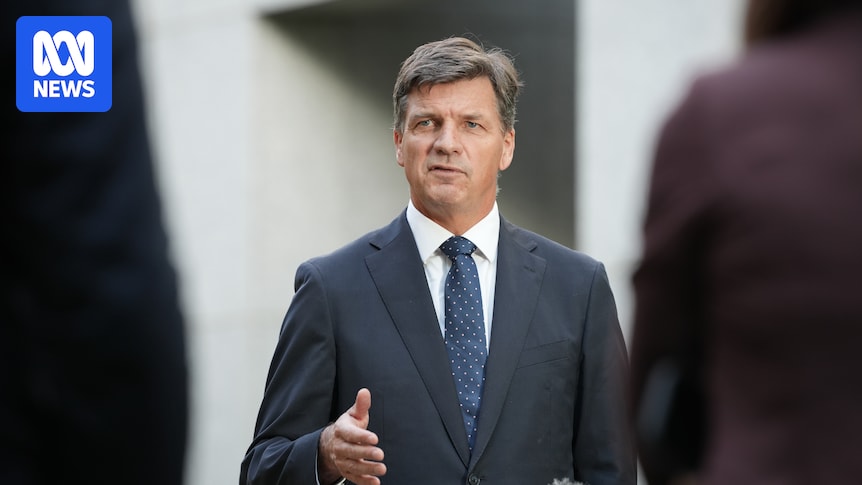Sussan Ley’s leadership rival Angus Taylor says a “crusade” is needed to involve more women in the Liberal party but remains opposed to gender quotas.
Moderates and conservatives are split over whether the party should force itself to boost female representation with a formal mechanism, or whether it can be trusted to do so organically after a heavy election loss worsened its already lopsided ranks.
There are now just six women among the 28 Liberals in the House of Representatives, with Ms Ley vowing to be a “zealot” about increasing that number even as she remains undecided on quotas.
But Mr Taylor, who leads the conservative wing of the party’s NSW branch, said he opposed quotas because they “subvert democratic processes” within the party.
“I think there are better ways of achieving this … Mentoring, recruitment, support is the way to make sure you have talented people,” he told ABC Radio National.
“We absolutely need more women in the party at every level, whether it’s members of our branches, whether it’s on our executives, whether indeed it is as members of parliament, and I think there’s a huge job for us,” he said.
“[But] I have never been a supporter of quotas.”
Conservatives and moderates divided
That view is shared by many conservatives in the party, who see the push for gender quotas as a guise for moderates, who are often outnumbered by conservatives in local branches, to get the upper hand in pre-selection battles they would otherwise lose.
Former PM Tony Abbott, who remains an active participant in internal party affairs, told the ABC this week quotas were “fundamentally illiberal” and at odds with “the merit principle that should be at the heart of our party”.
Sussan Ley lays out vision for Liberal Party
While several moderate women did prevail in pre-selection battles ahead of the last election, including Gisele Kapterian, who defeated high-profile conservative Warren Mundine in Bradfield, moderates remain concerned the deck is stacked against them.
Retired moderate leader Simon Birmingham, who called for “hard, fast and ambitious” quotas after the election, was explicit that the main blocker to pre-selecting women was “an increasingly narrow membership base, both in numbers and outlook”.
“Quotas for women in parliament may be somewhat illiberal. But I struggle to think of any alternatives if there’s to be a new direction that truly demonstrates change,” he said.
But conservatives point to Ms Ley’s new frontbench line-up as evidence that women on the right of the party have been overlooked, with Sarah Henderson and Claire Chandler dropped entirely and Jacinta Nampijinpa Price demoted from shadow cabinet.
Jane Hume, who is a moderate but is aligned with Mr Taylor, was also dropped. All four women are from the Senate, where the party has achieved near-gender parity.
State-by-state disparities
Ms Ley has emphasised that quota policies were a matter for individual state branches to decide, owing to the party’s federated model.
“It doesn’t have a top-down instruction method … Some state divisions might choose to implement quotas. If they do, that’s fine. If others don’t, that’s also fine,” she told the ABC on Thursday. “What is not fine is not having enough women.”
The issue will be a key consideration for James McGrath’s review of the future of the party, announced this week.
Senator McGrath, who is not aligned to either wing of the party, hails from Queensland, the state with the worst gender balance in the country at just one woman among 12 federal representatives.
The other laggard state is Western Australia, which has six men and two women.
New South Wales (6-4), Victoria (5-4), South Australia (4-3) and Tasmania (2-2) all have at least 40 per cent women, figures which would have been improved if the party as a whole had performed better at the last federal election.
The poor result saw sitting MPs Jenny Ware and Bridget Archer unexpectedly defeated, while Gisele Kapterian, Amelia Hamer and Katie Allen all lost in competitive races.
